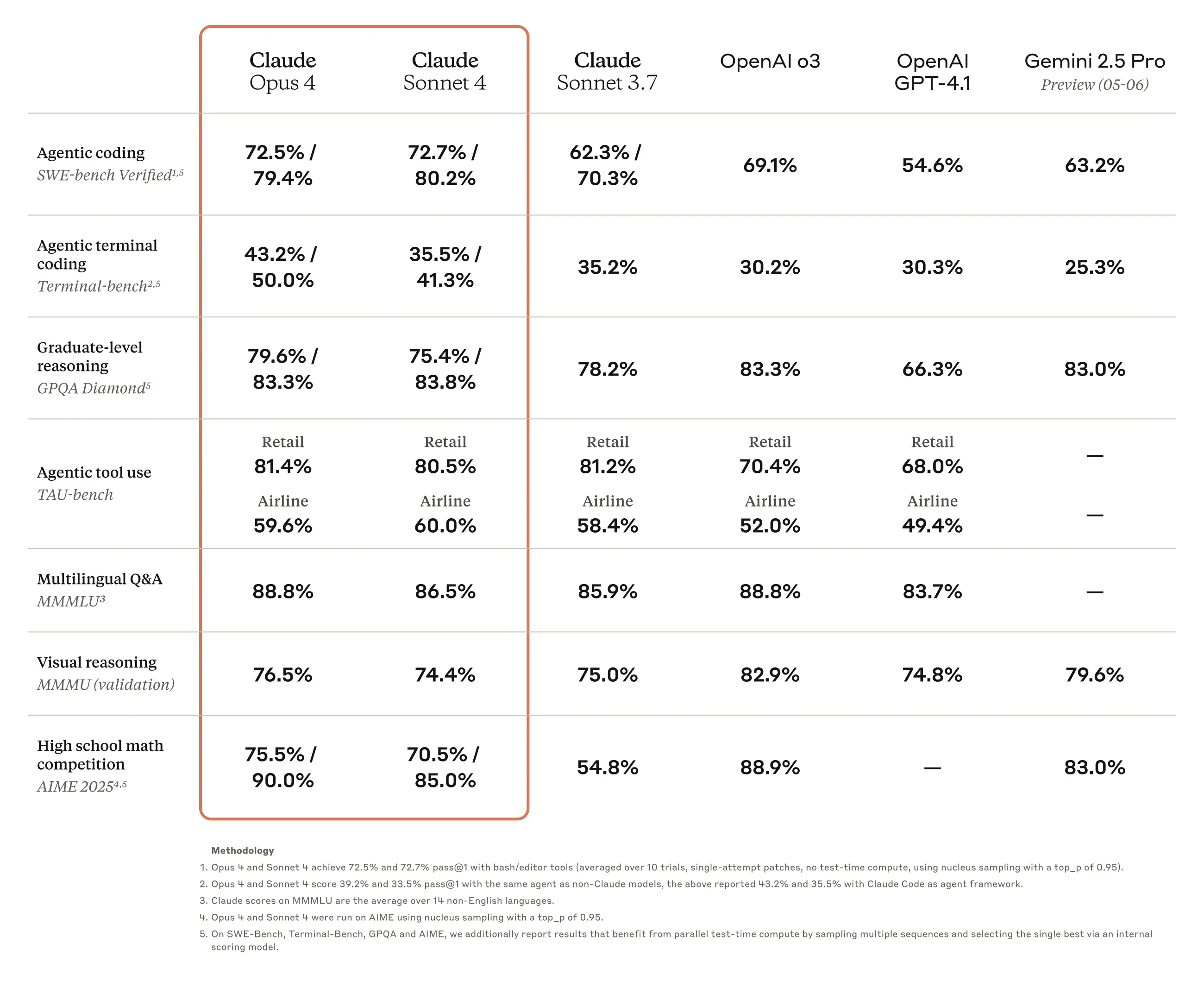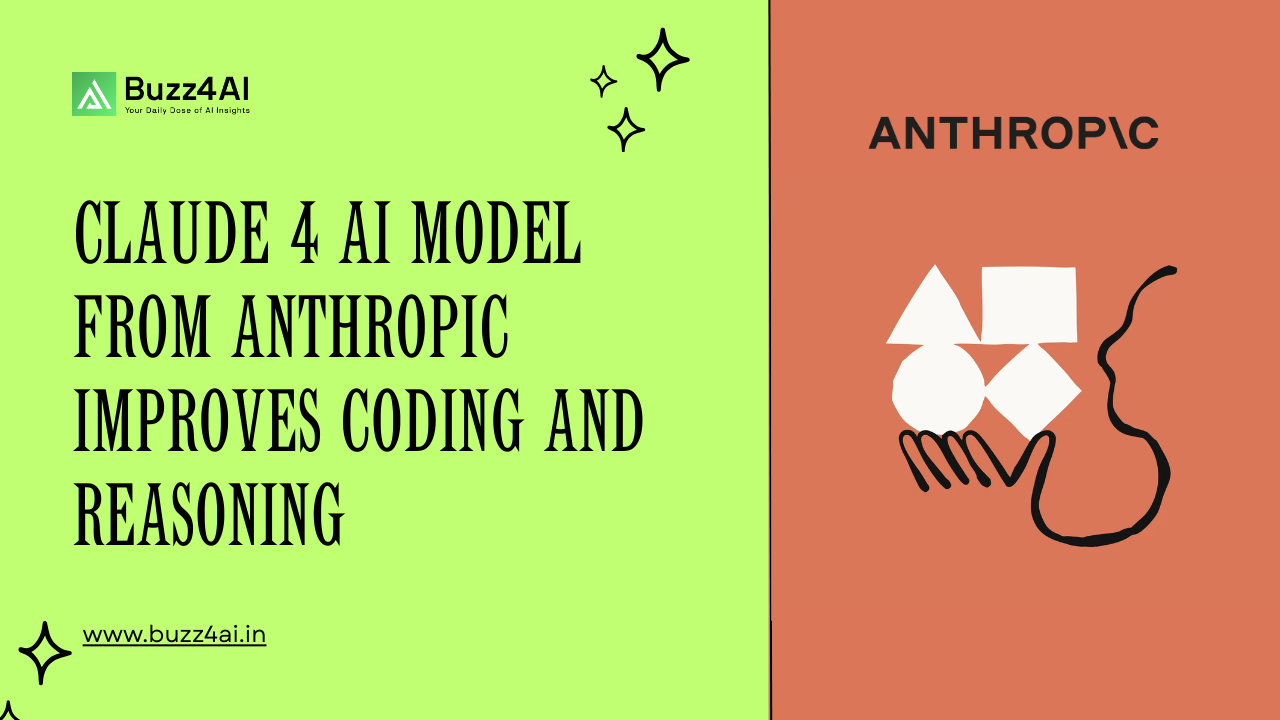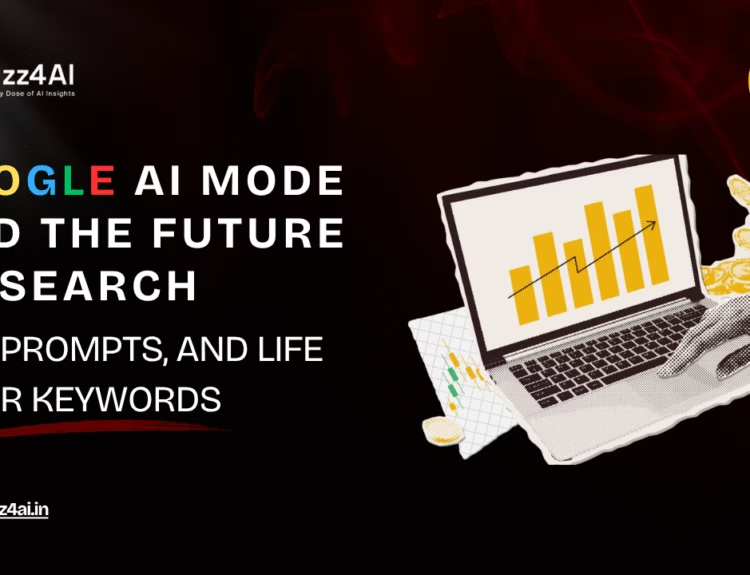Claude 4 AI Model introduced Claude Opus 4 and Claude Sonnet 4, its latest generation of hybrid-reasoning AI models optimized for coding tasks and solving complex problems.These models demonstrate notable improvements in coding proficiency and reasoning abilities, positioning Anthropic as a formidable contender in the AI landscape.
 Say hello to Claude Opus 4 and Claude Sonnet 4. | Image Credit : Anthropic
Say hello to Claude Opus 4 and Claude Sonnet 4. | Image Credit : Anthropic
Anthropic used the event stage to unveil two highly anticipated models, Claude Opus 4 and Claude Sonnet 4. Both offer improvements over their preceding models, including better performance in coding and reasoning. Beyond that, the company launched new features and tools for its models that should improve the user experience.
Keep reading to learn more about the new models.
Claude Opus 4: Advancements in Coding and Reasoning
The Claude Opus family has always been the company’s most advanced, intelligent AI models geared toward complex tasks. While the Claude Opus 3 was already renowned as a highly capable model.
Claude Opus 4 stands as Anthropic’s most advanced AI model to date. It exhibits exceptional performance in coding tasks, capable of autonomously writing code for extended periods. In testing, Claude Opus 4 maintained focus on complex coding projects for nearly seven hours, a substantial improvement over its predecessors.
Anthropic said Opus 4 was built to deliver sustained performance on complex, long-running tasks that require thousands of steps, significantly outperforming all of the Sonnet models. One of the biggest highlights is that the model can run autonomously for several hours, making Claude Opus 4 a great model for powering AI agents — the next frontier of AI assistance.
The appeal of AI agents lies in their ability to perform tasks for people without intervention. To do so successfully, they need to reason through the next necessary steps, such as which tool to call on or what action to take. As a result, agents need a model that can reason well and sustain that reasoning over time — like Claude Opus 4.
Claude Sonnet 4: Balancing Performance and Efficiency
Complementing Opus 4, Claude Sonnet 4 offers a balance between performance and resource efficiency. While more cost-effective, it doesn’t compromise on capabilities. In fact, Claude Sonnet 4 achieved an impressive 80.2% accuracy on the SWE-bench benchmark when utilizing parallel test-time compute, outperforming even the larger Opus 4 model in this context.
Designed for general tasks, Claude Sonnet 4 replaces the earlier 3.7 version, offering enhanced coding, reasoning, and precision. Its improved memory retention and reduced tendency to take shortcuts make it suitable for long-term tasks, especially when granted access to local files.
Benchmarks: Setting New Standards
Both Claude Opus 4 and Claude Sonnet 4 have set new benchmarks in AI performance. Their scores on the SWE-bench benchmark reflect significant advancements in coding and reasoning capabilities. These improvements underscore Anthropic’s commitment to developing AI models that can handle complex, long-duration tasks with greater autonomy and reliability.
Opus 4 and Sonnet 4 outperformed several leading models in the coding domain, including OpenAI Codex-1, OpenAI o3, GPT-4.1, and Gemini 2.5 Pro.
 Image Credit : Anthropic
Image Credit : Anthropic
Beyond coding, Opus 4 and Sonnet 4 also performed competitively, either leading the categories or coming close to it, across other traditionally used benchmarks, including GPQA Diamond, which tests for graduate-level reasoning; AIME 2025, which tests high school match competition level; and the MMMLU, which tests for multilingual tasks.
 Image Credit : Anthropic
Image Credit : Anthropic
Availability: Accessing Claude 4 Models
Anthropic has made Claude Opus 4 and Claude Sonnet 4 accessible through various platforms. Claude Opus 4 is available to paying users via the Anthropic API, Amazon Bedrock, and Google Cloud’s Vertex AI. Claude Sonnet 4, on the other hand, is accessible to both free and paid users, albeit without extended thinking features for free users.
Bonus: Claude Code—Enhancing Developer Workflows
In addition to the new models, Anthropic has officially launched Claude Code, an AI-powered command-line tool designed to assist developers. Claude Codeintegrates directly into the terminal, offering deep codebase awareness and the ability to edit files and run commands within the development environment .
This tool acts as a smart co-developer, capable of reading and modifying files, running tests, and even creating commits and pull requests. By automating repetitive tasks, Claude Code allows developers to focus on more complex problem-solving and creative aspects of software development.
Final Thoughts
The introduction of Claude Opus 4 and Claude Sonnet 4 marks a significant milestone in AI development. With enhanced coding and reasoning capabilities, these models are poised to transform various industries by automating complex tasks and improving efficiency. The addition of Claude Code further extends Anthropic’s impact, offering developers a powerful tool to streamline their workflows.
As AI continues to evolve, Anthropic’s latest offerings demonstrate the potential for AI to not only augment human capabilities but also to operate with increased autonomy and reliability. These advancements pave the way for more sophisticated and practical applications of AI in the near future.
For more posts visit buzz4ai.in




[…] and everyone can’t stop talking about it? That’s exactly where we are in AI right now. Anthropic just rolled out two showstoppers—Claude Opus 4 and Sonnet 4—and Google’s Gemini 2.5 Pro […]
[…] newly announced voice mode is allows users to engage in real-time conversations with Claude on both the iOS and Android devices. This feature provides seamless transition between the text and […]
[…] out that Perplexity Labs is a response to tools and models such as OpenAI (launched in March), Claude Opus 4 (released in May), and Google’s recent Flow and Firebase […]
[…] Apple’s ecosystem in October 2024, and it’s here to stay as Apple competes with Google, OpenAI, Anthropic, and others to build the best AI […]
[…] Also Read: Claude 4 AI Model from Anthropic Improves Coding and Reasoning […]